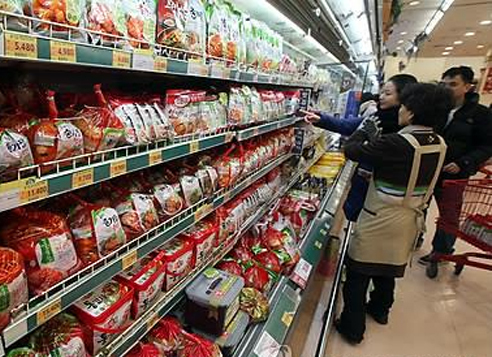The gap in real income and purchasing power by the higher income class and the lower income one in South Korea has further expanded due largely to a sharp growth gap in their nominal income, a report showed Monday.
According to the report by the state-run Korea Development Institute, the real income of those in the lowest income bracket, or the first quintile, has grown an average 1.2 percent from 2003 to 2016, while the richest people saw their real income gain 1.9 percent on average over the same period.
 |
(Yonhap) |
As a result, the gap in real purchasing power between the two groups has expanded 10 percent or more during the cited period, the report said.
The KDI report said the disparity came from the difference in their nominal income as the nominal income in the lowest and the highest classes rose an average 3.5 percent and 4.2 percent, respectively, over the cited period. The annual inflation rate was 2.2 percent over the period.
"The discrepancies in the real purchasing power of different income quintiles is due to the varying growths in nominal income created before the financial crisis," it said.
Also, the report said a sharp rise in retired people in the lowest income group contributed to the widened gap in real income with those in the higher income group.
The percentage of the old people who experienced a drop in wage income rose to nearly 60 percent in the lowest bracket in 2016 from less than 40 percent in 2003. (Yonhap)





![[Herald Interview] 'Korea, don't repeat Hong Kong's mistakes on foreign caregivers'](http://res.heraldm.com/phpwas/restmb_idxmake.php?idx=644&simg=/content/image/2024/11/13/20241113050481_0.jpg)
![[KH Explains] Why Yoon golfing is so controversial](http://res.heraldm.com/phpwas/restmb_idxmake.php?idx=644&simg=/content/image/2024/11/13/20241113050608_0.jpg)

